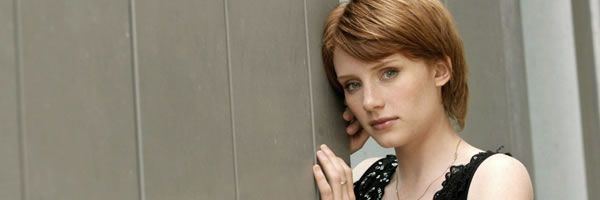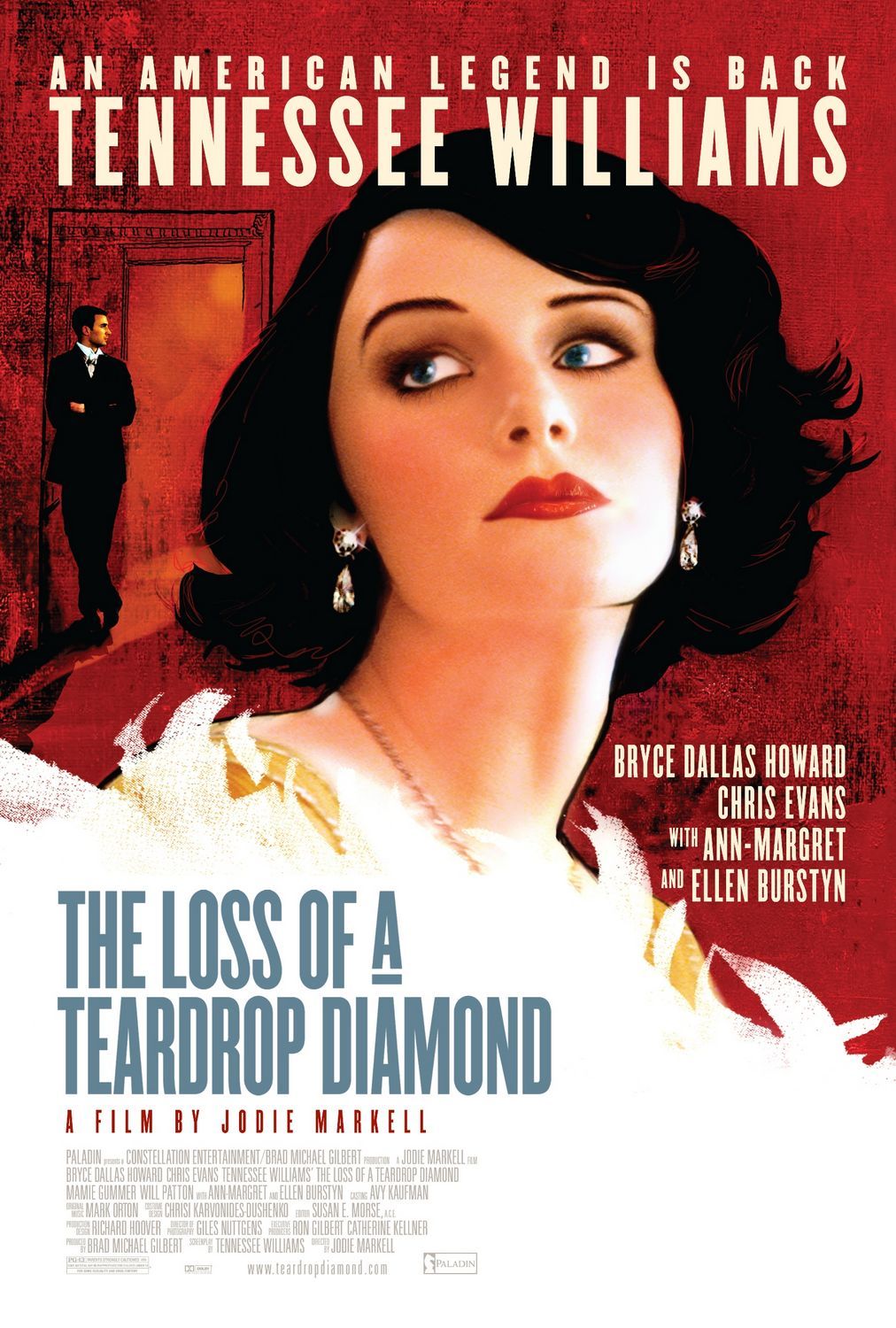Legendary writer Tennessee Williams is widely considered the most important American playwright of the post-WWII era, with many of his classic plays, including A Streetcar Named Desire and Cat on a Hot Tin Roof, adapted into classic films. The Loss of a Teardrop Diamond is a rediscovered original screenplay from the 1950s, that has been brought to life by first time director Jodie Markell and actress Bryce Dallas Howard.
The daughter of successful actor-turned-director Ron Howard, Bryce has already developed quite a name for herself, working in some of the biggest film franchises (The Twilight Saga, Terminator, Spider-Man) and with some of the most intriguing filmmakers (Sam Raimi, M. Night Shyamalan, Lars von Trier, Kenneth Branagh, McG and now Clint Eastwood).
During the press day for The Loss of a Teardrop Diamond, Bryce Dallas Howard talked about the experience of adding Tennessee Williams heroine to her resume and a lot more:
Is being a Tennessee Williams heroine a genre unto itself?
Bryce: It is. I really valued going through his canon of work and studying the great performances that had already been captured on celluloid and reading about the great theatrical performances because, in my opinion, he was a very singular writer and he had particular themes that it seems he was consistently fascinated by. There's an iconic Williams female character that you see elements of, over and over and over again, which is a woman ahead of her time, who's being suffocated by the world and who's too bright, too clever and too sensitive to really survive and feel grounded. So, to go through and watch Blanche DuBois and Maggie the Cat, who are these really iconic characters that he had created, and steal, to be honest, was something that was helpful to me.
When you were watching those various performances, did you try to mimic the way they spoke at all?
Bryce: No, not that so much. We had this wonderful gentleman, Tim Monich, who was really helpful with the dialect.
What was that like to adapt your acting, in scenes with so many words?
Bryce: I come from a little bit of a theatrical background. I started that way. I don't have a tremendous body of work or anything, but I went to drama school. And so, to get to do a piece where the characters get to talk a lot, and that isn't just about the spectacle or the set piece, or is simply visual or movement based. It was really wonderful for me, and juicy and exciting. So, I didn't feel like there needed to be an adaptation to a different kind of style. It's just that the characters are speaking their mind. As opposed to it just being an expression, they're actually saying what's on their mind, and that's something that Tennessee Williams is really famous for. Shakespeare does that and Tennessee Williams does that. You crave that, when you're an actor, for sure.
How did you go about approaching this in such a grounded way?
Bryce: I didn't consciously do that. I was always on set asking for line readings.
What was it like to work with Chris Evans?
Bryce: Chris comes from a theater background as well and he really values rehearsal. It was such a relief to work with him because usually I feel like I'm the one harassing people to do it again, and he was right there. We'd rehearse pretty consistently until four in the morning. It's a very nuanced relationship. There's this shift in dominant-submissive that keeps happening throughout the film. This is Tennessee Williams. We wanted to do our best and give it our best go. I just felt really lucky to work with him, for that reason. I remember looking on the monitor one day, and I was like, "Oh, my God, he looks like Paul Newman." There's something classic about him. He has this classic, strong, leading man presence, and is just such a wonderful person as well.
Clint Eastwood, who you will be working with next on Hereafter, is an actor who became a director, Jodie Markell, your director on this film, is an actor who became a director and you grew up with a father (Ron Howard) who was an actor that became a director. Is there a certain comfort zone, or a certain sense that you can communicate in a different way with a director who has been on your side of the camera?
Bryce: I couldn't answer that, just because I'm not a director. But, working with directors whose history is in performance, I feel like there's a different kind of focus, as opposed to directors who are more prone to being really technically proficient or visual. I feel like there are two schools of both, and a director needs to have both. Jodie has both, for sure. I felt really, really supported, in terms of my performance. When I had questions or when she was directing me, there was an approach that was coming from a psychological place because she's an actor, and so she knows how to speak that language. Kenneth Branagh was the same way. M. Night Shyamalan is the same way. And, that's highly effective, for a number of reasons.
What is the best advice that your father ever gave you, as an actor, and the best advice he ever gave you, from a directorial standpoint?
Bryce: The best advice he gave me was that, if there was anything else I could do, to do that. You need to not be able to do anything else, to be in this business. If you have other options, in those unemployed moments, those other options will take precedent. From a directorial standpoint, I think it's really Freudian, the amount of trust I have in filmmakers because I have such a trusting relationship with my dad. He's such a mentor to me. He has never let me down, as a person. He just hasn't. And, that's translated for me with filmmakers. I have an association that director means total authority. Director means they will never let you down. Director means just trust them and fulfill their vision, and know that the story will be told in its best incarnation. I've always felt really lucky to get to work with really great filmmakers. For me, the whole objective is just to hopefully be of service to what they want. In his persona, that's been the advice that he hasn't directly said, but I've understood.



.jpg)

.jpg)